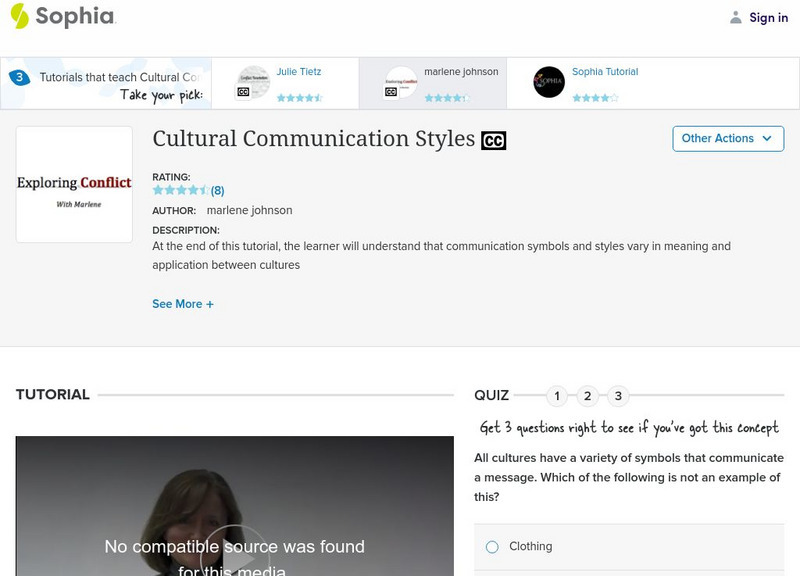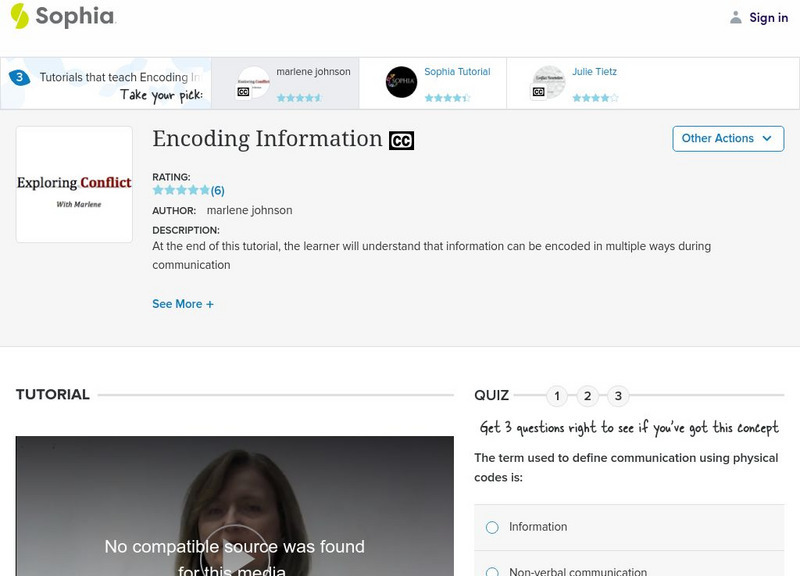Hi, what do you want to do?
TED-Ed
The Rise and Fall of the Byzantine Empire
Empires come and empires go, and some aren't even known as empires until after they fall. Such is the case with what is today called the Byzantine Empire. Learn more about the history of the empire, founded by Emperor Constantine, that...
TED-Ed
A Day in the Life of a Roman Soldier
The Roman army, like Gaul, was divided into three parts: legions, cohorts, centuries. Viewers experience a day in the life of Servius Felix, a legionary in the Roman army, as they watch an informative video.
TED-Ed
A Day in the Life of an Ancient Athenian
To learn more about life in ancient Greece, viewers spend a day with Athenians Archias and his wife, Dexileia. Viewers learn about Archias's household and observe the roles of his wife, his children and their tutors, and his slaves. Then...
TED-Ed
The Language of Lying
Did you know that we hear anywhere from 10 to 200 lies a day? This is an intriguing video that discusses the decisions made by the conscious mind, indicators of deception, and examples of famous individuals who were caught in a lie.
Ophea
Applying Physical & Health Literacy
Raise teenagers' awareness about the importance of living an active life and staying physically fit by using this short health video. Starting with a series of facts about the negative consequences of physical...
Ophea
Exploring Physical & Health Literacy
Help students discover the importance of physical fitness with this health literacy video. Beginning with a comparison of the choices made by two fictional teenagers, this resource continues on to explore the basic...
TED-Ed
The Hidden Power of Smiling
Smiling is something we may do every day and can appear benign, yet this common expression has more health benefits and psychological/physical implications than we realize! Using historical quotes, scientific studies, and a vast range of...
TED-Ed
What Cameras See That Our Eyes Don't
Cameras are amazing tools that enhance the way we see the world. From capturing time-lapse footage of seeds sprouting or seasons changing, to high-speed photography showing a bullet crashing through its target, cameras allow us to see...
TED-Ed
Animation Basics: The Option Illusion of Motion
From creating simple flip books to watching Saturday morning cartoons, we have all experienced the magic of animation. But how is it that a series of still images can be brought to life? It all has to do with the speed at which our brain...
TED-Ed
A Call to Invention: DIY Speaker Edition
Can you build a homemade speaker out of a potato chip? Bestselling author and do-it-yourself expert William Gurstelle shows you how in his brief presentation at TEDYouth 2012. He encourages young people to be creative and explore...
TED-Ed
Why is Yawning Contagious?
How can a bodily function be contagious? It is a question scientists and psychologists are still grappling with, but some of the leading hypotheses are presented here in the case of the contagious yawn. Most likely, it is something we...
TED-Ed
Penguins: Popularity, Peril and Poop
Penguins, one of the most beloved bird species in the world, are not only adorable, they are also in grave danger. Five-sixths of the world's penguin species are endangered or nearly endangered, mostly due to human activities such as...
TED-Ed
A Rare, Spectacular Total Eclipse of the Sun
According to some ancient Mesopotamians, "The sun was put to shame" during a 14th century total solar eclipse. How can the moon, which is 400 times smaller than the sun, completely cover it? This video demonstrates the answer...
TED-Ed
Why Can't we See Evidence of Alien Life?
With so indescribably many stars and planets in existence, certainly we aren't alone in the universe! Or are we? Strangely, we haven't discovered any hints of life beyond Earth. The contradiction, known as the Fermi paradox, is...
TED-Ed
Dark Matter: How Does it Explain a Star's Speed?
Studying spiral galaxies can make your head spin! With this video, find out how astronomers calculate a galaxy's rotational speed, and how the prediction that the outermost stars slow down does not seem to be true. The mystery may be...
TED-Ed
The Lost Art of Democratic Debate
Debates afford our learners the opportunity to become better researchers, critical thinkers, eloquent speakers, and informed participants in our society. If you are planning to host debates in your classroom, try beginning by...
TED-Ed
The Moon Illusion
Does the moon change size? It sure looks like it! Two optical illusions are suggested as an explanation: Ebbinghaus and Ponzo. However, there are problems with both of these. Convergence micropsia may answer the question, but many...
Sophia Learning
Sophia: Judgements
This video lesson focuses on judgements by first defining it as arriving at an opinion or evaluation about something. Then it looks at the difference between evaluation and judgement, and the place of judgement in writing. Real Player is...
Sophia Learning
Sophia: Paragraph Sizing
This video lesson focuses on paragraph size; paragraph size depends on units of ideas. Keep the reader in mind, and vary paragraph lengths. Real Player is required.
New Zealand Ministry of Education
Te Kete Ipurangi: Thinking and Reading Comprehension
Julie Cowan from Willowbank School explains how she supports students to become strategic, reflective, and metacognitive readers and thinkers.
Sophia Learning
Sophia: Cultural Communication Styles: Lesson 1
At the end of this tutorial, the learner will understand that communication symbols and styles vary in meaning and application between cultures. It is 1 of 3 in the series titled "Cultural Communication Styles."
Sophia Learning
Sophia: Encoding Information: Lesson 1
At the end of this tutorial, the learner will understand that information can be encoded in multiple ways during communication. It is 1 of 3 in the series titled "Encoding Information."
Imagine Learning Classroom
Learn Zillion: Evaluate an Argument in a Text
In this lesson, you'll learn how to evaluate an argument by asking if its evidence is relevant and sufficient. [9:42]
Other
What Is Critical Thinking and Why Is It Important?
One of the thinking skills for the 21st century is that of critical thinking. This site defines what critical thinking is and explains why it is important in today's world.



























